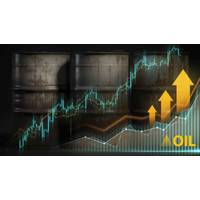OW Bunker Collapse Rattles Singapore Bunker Markets
Major oil companies, trade firms to expand market share; tight credit hits small retailers.
The collapse of OW Bunker in the wake of an alleged fraud at its Singapore trading unit will shake up the city state's more than $25 billion marine fuel market, the world's largest, as major companies expand and small ones shrink amid a credit squeeze.
OW Bunker, a leading supplier of marine fuel oil known as "bunker", filed for bankruptcy in Denmark a week ago after it revealed losses of at least $125 million at Dynamic Oil Trading, prompting banks to refuse to provide new credit lines.
In a market that relies heavily on open credit, traders fear the incident could create a domino effect, pulling more companies down with it.
"Credit is so tight, only the big boys will survive," said independent energy consultant Ong Eng Tong.
A slew of creditors have launched legal actions in Singapore to reclaim debts, while fears of counterparty exposure have pushed up credit costs and driven bunker fuel premiums to hit more than 2-year highs.
Fuel oil sellers are demanding payment guarantees for oil sold to bunker companies, while the cost to insure such deals is also set to climb as claims relating to OW Bunker roll in.
Shipowners are also heading to other ports in Asia, with Hong Kong sellers getting up to 20 percent more inquiries from shipowners following OW's collapse.
The Maritime and Port Authority of Singapore (MPA) and the Singapore Shipping Association have said there was no disruption to bunker supply in the city state.
BIG COMPANIES TO EXPAND
Backed by strong credit lines and balance sheets, major oil companies BP, Royal Dutch Shell and independents Glencore, Vitol and Hin Leong could expand their market share, but small companies in the supply chain are vulnerable, traders said.
"Small traders, who used to rely on open credit or sleeving are the ones suffering the most," a bunker fuel trader in Singapore said.
Because of the sheer size of Singapore's bunker fuel market, with close to 43 million tonnes of oil sold last year, there are more companies supplying ship fuel than the 63 bunker fuel companies licensed by MPA, traders said.
Smaller players act as retailers, borrowing credit lines and bunker delivery notes from big companies that act as middlemen for a fee, and using the credit buy fuel oil for delivery to shipowners. The process is known in the industry as sleeving.
"It's not always a case of poor credit, more a case of risk and bringing something to the table for a counterparty," a second bunker fuel trader said.
"This is a very competitive market and things like this can make a difference in getting the support from a supplier."
There are no official figures on how many such firms there are in Singapore, but a trader's estimate put it at 30 to 40.
A fuel oil trader said a shake-up in the messy industry was long due, but others expect the business model to continue once the incident blows over.
"The underlying model makes money...it's still very much a relationship business," a second fuel oil trader said. "It all will have an impact but the question is about duration. Maybe we will see the likes of Shell increase delivered business."
Rising costs has also tweaked a peculiarity in the Singapore market, where oil delivered to ships is cheaper than fuel oil sold from tanks.
Delivered bunker prices are now about $8 per tonne higher than ex-wharf fuel oil, traders said.
By Jane Xie and Florence Tan






